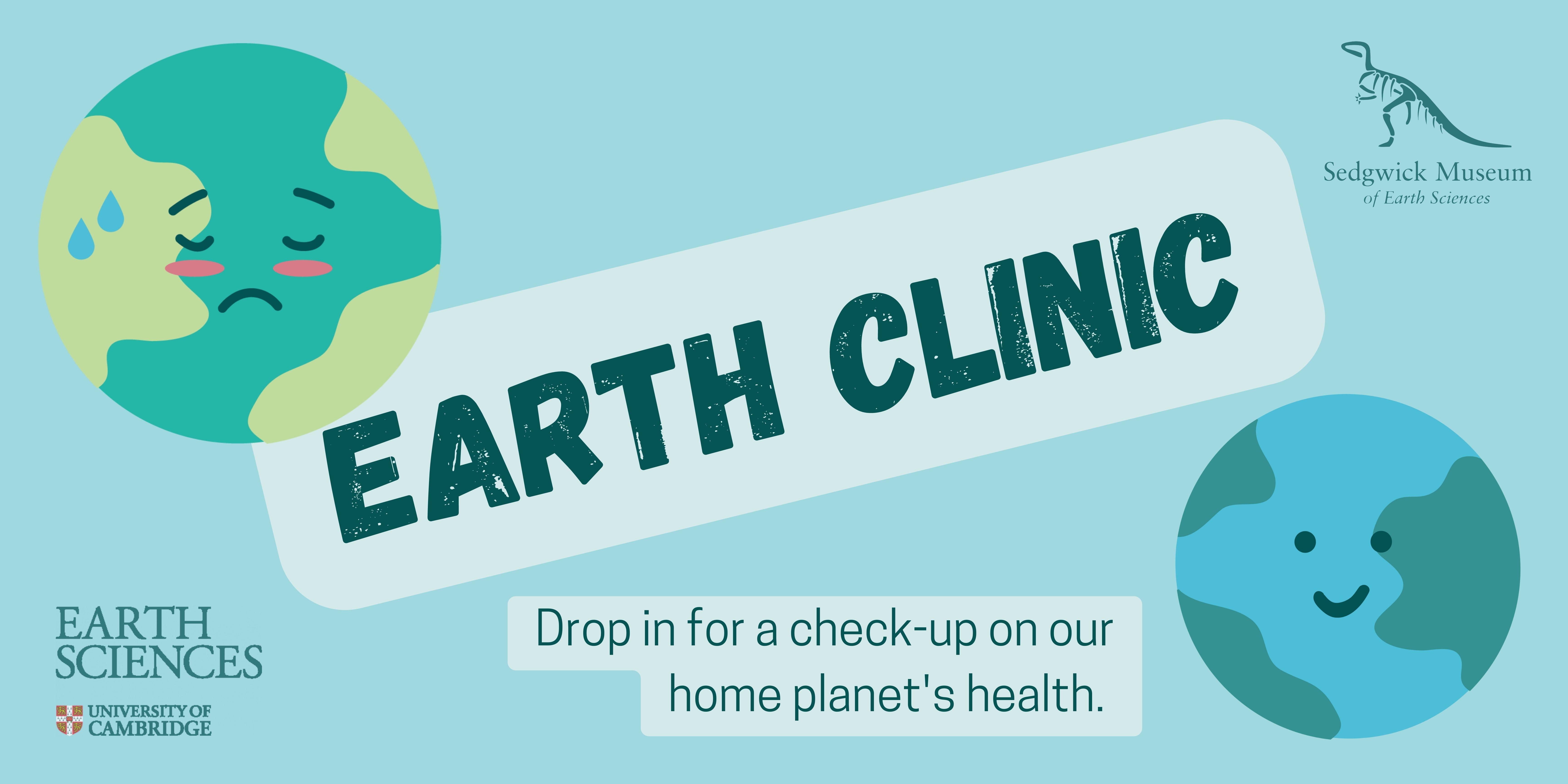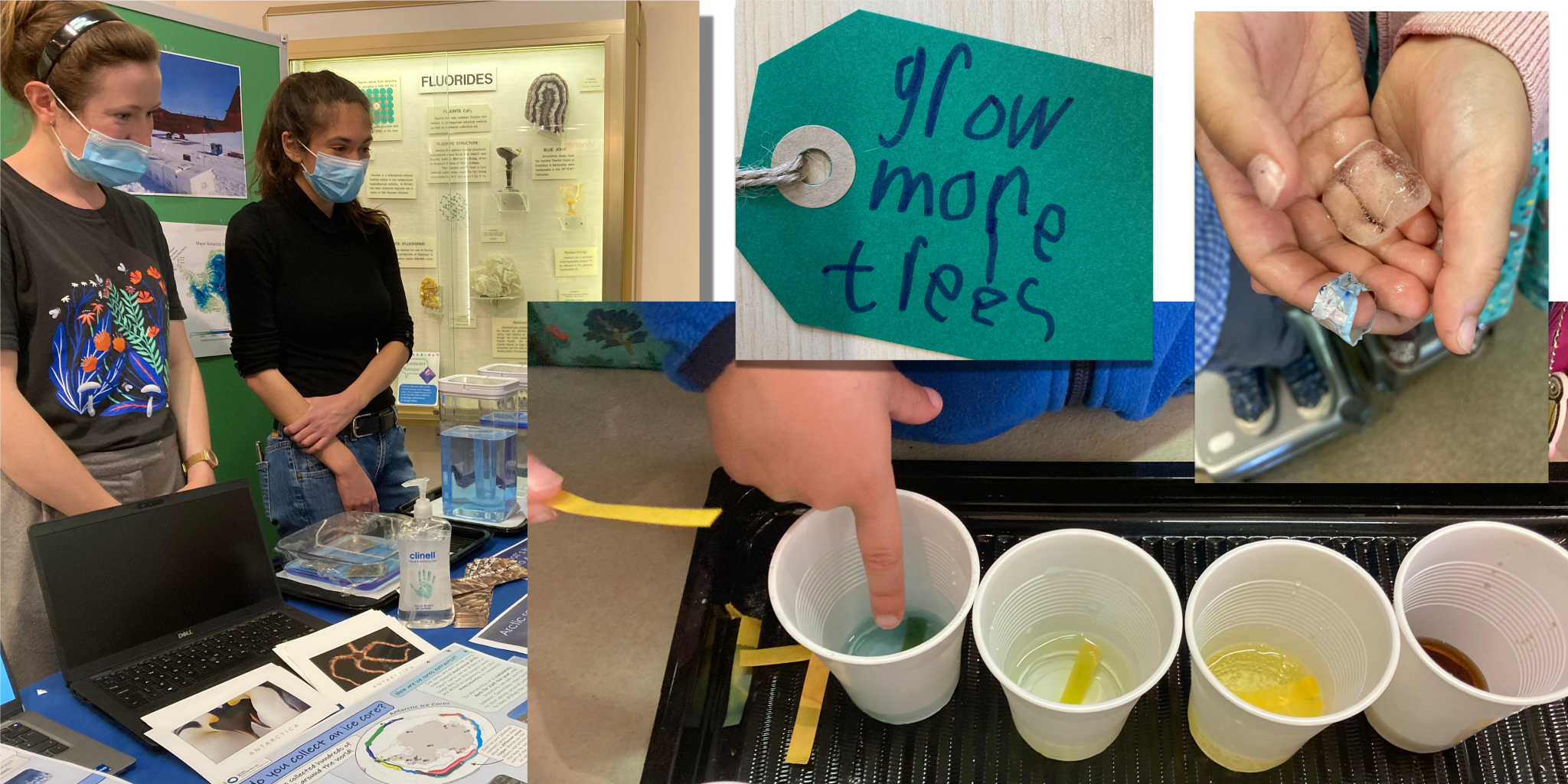
Submitted by Dr C.M. Martin-Jones on Mon, 25/04/2022 - 11:12
On Saturday 23rd April the Sedgwick Museum and Department of Earth Sciences hosted their first joint family event in celebration of Earth Day.
The Earth Clinic explored what scientists are doing to understand and help our changing planet — as well as empowering young people to make informed decisions on environmental issues like climate change.
The project hopes to highlight the role of geoscience in climate and environmental research and showcase diverse role models and careers in earth science.
“The global climate crisis is very real, and as an Earth Science museum we have a responsibility to help people understand how we can all mitigate its impacts in our daily lives” said Liz Hide, Director of the Sedgwick Museum.
Activities provided children and families with the opportunity to explore what researchers are working on and try out some of the tools that climate scientists use.
Seven postgraduate students from the NERC-funded doctoral training programme, which is hosted by the Department of Earth Sciences, presented their research through engaging activities and discussions.
Focus topics at Earth Clinic ranged from the carbon cycle — including natural volcanic emissions and human impacts leading to ocean acidification — to Earth’s records of climate change revealed through ice cores and marine sediments.
Children were able to bubble their own CO2 into ocean water and measure changing pH, examine gas bubbles in volcanic rocks from across the world, study tiny marine shells or foraminifera under the microscope, and handle 500,000-year-old ice from Antarctica. Families also contributed ideas on how they can protect the environment to a pledge tree.
Visitors commented on how enthusiastic the students were and found the hands-on experiments particularly enjoyable.
The Museum and Department are now looking to build on the event in the future, “Earth Clinic provided a great opportunity for the public to meet and hear first hand from early career scientists working in this field, who shared their expertise and enthusiasm, and developed their skills and confidence in engaging with the public. I'm looking forward to Earth Clinic becoming an annual event!”
We thank the British Antarctic Survey for kindly lending outreach materials for the event.

